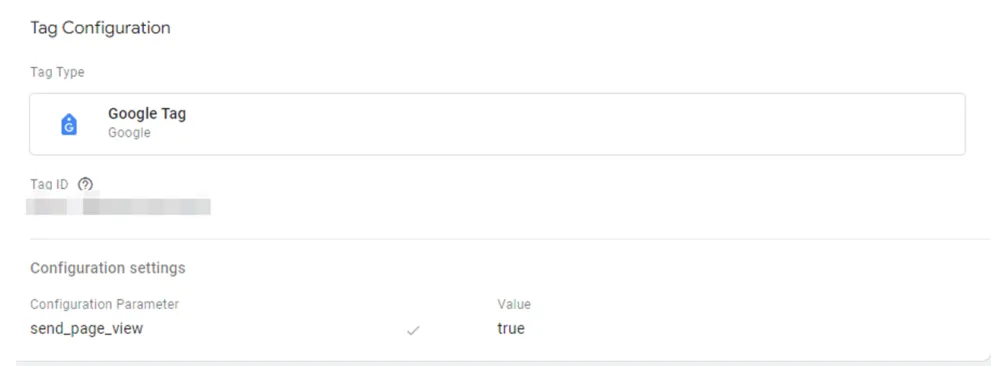If you’ve previously set up Google Analytics 4 (GA4) inside Google Tag Manager, you would have probably used the GA4 configuration tag. However, thanks to some changes from Google, that is no longer the case.
At the beginning of September, Google announced the release of a new tag called “Google tag” to replace the Google Analytics: GA4 Configuration tag.
What is the new Google tag in Tag Manager?
Google tag is essentially a Google Tag Manager change, meaning Google tag will be replacing the GA4 configuration tag. The new Google tag offers better integration with other Google products and the ability to reuse tracking parameters across multiple setups, including Google Ads.
For those who are unfamiliar with the GA4 Configuration tag, it was used to collect the base-level data for GA4 to build event tracking upon.
When did Google tag start rolling out?
Google started rolling out Google tag in early September 2023, and most accounts have already seen the change at the time of publishing.
If you’ve created a new Google Tag Manager (GTM) container after September 2023, you’ll have automatically used the new Google tag, so no need to panic!
What does the change to Google tag mean?
If you’re a user of multiple Google products, as most of us are, the change to Google tag is only a good thing as it allows for repeatability and a reduction in potential duplication.
The core functionality of how the GA4 configuration tag worked hasn’t changed but the change to Google tag, instead of the GA4 configuration tag. helps to make measurement elements become more repeatable and easier to maintain by streamlining your settings.
If you work with multiple Google products, you’ll now have a more scalable solution for tracking with GTM, rather than having to copy over the same settings for multiple tags.
There’s lots of talk along the grapevine about how this will help GA4, but it is only a GTM change. The functionality will not change for GA4. In other words, if you have historically experienced issues with data in GA4, the Google tag will not necessarily resolve those issues but instead make the data passed easier to control and more reapeatable.
What is changing in Google Tag Manager with Google tag?
While there’s no major difference in the day-to-day tracking you’ll see, there are some positive changes for those who set up tracking, especially with Google products.
1. Enhanced integration with other Google Products
With Google tag, you can send the same data to multiple Google products, such as Google Ads conversions.
In theory, this means better data collection across Google products as Google isn’t sequencing how the data is being sent. So, if there is a change in user behaviour, the same data is sent to multiple Google products at the same time. This helps reduce discrepancies with data across Google products.
2. New setting variables – Configuration & event setting variables
Now with Google tag, you can reuse parameters that are used for settings. This helps with future maintenance of tags and tracking and helps reduce human error if the same settings are available to use.
3. Page view event can be sent at the same time as the configuration loads
Before Google tag, the GA4 configuration tag loaded the right tracking code but didn’t load the page view event until the page fully loaded.
With Google tag, the page view event can now load at the same time the configuration tag loads, if you want it to

4. Better user properties (first-party data)
With Google tag, Tag Manager has moved from individual event tracking to event settings variable. This enables you to utilise user properties.
User properties are a way to help group users based on the actions they take such as:
- Logged in state
- Members state
- Audience type (if dual audience)
Area of interest (can be used for creating audiences) Will my current GA4 tracking stop?
Existing GA4 Configuration tags will be migrated automatically to the new Google tag. You will know if your GA4 configuration tag has changed based on the banner notification in GTM:

Source: Google Tag Manager

SOURCE: Google Tag Manager
Our opinion:
It seems there is some confusion over what this change means for GA4, instead this helps those using GTM as a method to implement their GA4 to streamline how it is set up. This is done by making repeatable variables accessible across multiple tags as standard. It helps with the maintenance and hygiene of GTM for future changes to tracking
Want help with your tracking?
Our insights experts are on hand to help you get the best tracking setup possible, identify any issues and provide support.
Why not get in touch today to find out more?






